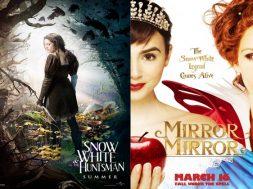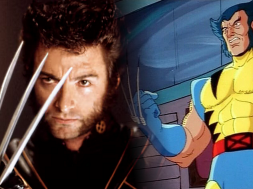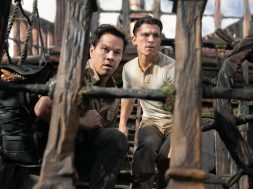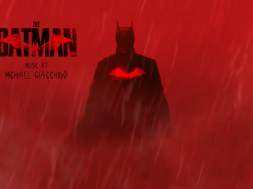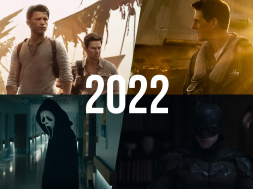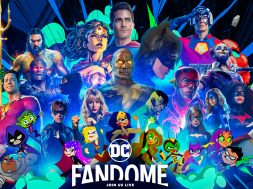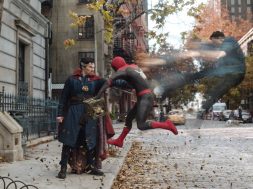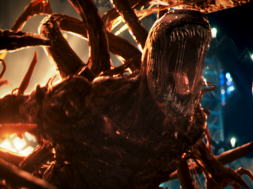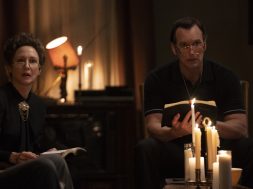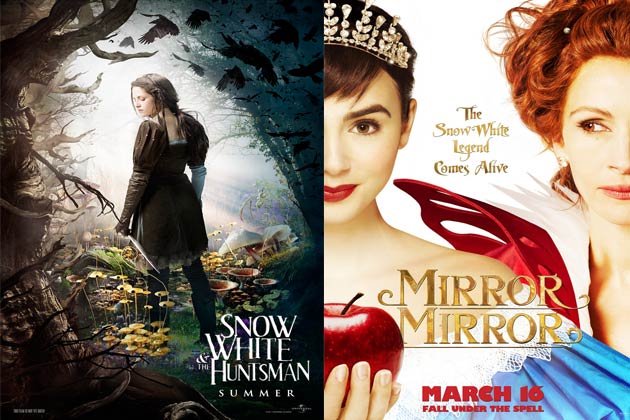
Screensavers: Snow White and the Huntsman vs Mirror Mirror
In this day and age, it’s hard to pull off a fairy tale movie. Snow White and the Huntsman was bumped around production purgatory for nearly a decade, struggling for the green light. The box-office failure of The Brothers Grimm wasn’t a good sign, but thanks to the success of Tim Burton’s Alice In Wonderland, the script was finally picked up. With a strong cast, featuring Kristen Stewart, Charlize Theron and Chris Hemsworth, Snow White and the Huntsman made a strong attempt to modernize the fairy tale. The film opts for the darker origins of the fairy tale, emphasizing the menace of the original tale. While the special effects are impressive, with a suitably Gothic aesthetic, the film suffers from a myriad of issues. The characters are inconsistent, the plot has serious pacing issues and much of the film’s mythology doesn’t add up.

I was ultimately left disappointed when I first watched the film back in 2012. However, fairly recently I discovered the overlooked Mirror Mirror, which was release in the same year to a lacklustre reception. I believe the film to be an overlooked gem, showing an alternative but no less modern take on the fairy tale. This is especially impressive, given that Mirror Mirror was working on half the budget of Snow White and the Huntsman. Mirror Mirror is far more upbeat, glossing over the darker aspects of the tale. While I don’t feel this difference in tone necessarily makes Mirror Mirror superior to its grim cousin, I can’t help but feel Huntsman was counted as a better product solely because of its self-conscious grittiness. If we’ve learned anything from the recent blunder of BatmanVSuperman, it’s surely that darkness doesn’t necessarily equal depth in storytelling.

First of all, there’s a radical difference in tone between the evil queens Ravenna and Clementianna. Charlize Theron is a beauty-obsessed dark enchantress, bathing in milk and training the life force of young women to maintain her beauty. One scene shows the leftover milk being poured out for Ravenna’s starving subjects in a fairly decent metaphor for trickle-down economics. Her reign is underscored by a hatred and distrust for men, seen in her quick murder of Snow’s father. Ravenna lost her parents and home at a young age, being given supernatural beauty and power by her mother’s magic shortly before the attackers arrived. It is further implied that she suffered some form of abusive marriage at a later point in her life.

Her tyrannical rule is therefore motivated by both a desire to maintain her youth and power and a deep distrust for the world around her. She summarizes this quite aptly in the fairly badass line “I will give this wretched world the queen it deserves.” Ravenna’s past and character raise an interesting point about the nature of female sexuality and the way it is perceived. Having been (possibly) victimized for this in the past, Ravenna now uses it as a weapon. However, it seems to have become a double edged sword as the effort required to maintain her magic and beauty grows greater. Ravenna’s only redeeming feature seems to be her genuine affection for her brother Finn, whom she keeps young with her magic. However, apart from the fact that Finn something of a monster, the relationship between the two seems a bit too close…
Her habit for draining young women of their youth is particularly callous, leading to one particularly dark scene. Halfway through the film, snow comes across a village populated entirely by young women. In order to escape Ravenna’s attention, they have purposely disfigured themselves. This again raises interesting questions about the value of young women in society being tied to their desirability. Without their beauty, they are regarded as a threat. In contrast to this, Stewart’s Snow is contrasted with Ravenna as the fairest of them all. While ‘fair’ may relate more to inner beauty, the fact that Snow is also a conventionally attractive women raises a further question. Stewart’s lack of concern for her own appearance implies that her beauty lies in her ‘innocence.’ While pitting a chaste maiden against an hypersexualized villainess isn’t necessarily sexist, it does risk presenting female sexuality as something inherently dangerous.
Julia Roberts’ cruelty is more cartoonish, staying young with an absurd series of skin care regimens featuring practically every member of the animal kingdom. However, humour often serves to underscore Clementianna’s villainy fairly effectively. Her first appearance sees the queen playing a game of life-sized battleship at court, an early testament to her extravagance (funded by increasingly unfair taxes). Her mean spirited nature is further emphasized in her relationship with her cowardly servant Brighton (Nathan Lane), whom she delights in tormenting and ordering around. She seems more romantic than Ravenna but only slightly; she marries for affection but grows tired of her partners quickly and…disposes of them. While funny villains don’t necessarily mean better villains, Roberts is really allowed to let loose in this role. The royal court looks amazing under the design of Eiko Ishioka, doing much to emphasize the queen’s vanity and extravagance while her kingdom goes hungry.

Another big difference between the two films emerges in its treatment of the Seven Dwarves. Snow White and the Huntsman opts for using CGI to shrink eight actors to fit the role. Ian McShane, Bob Hoskins, Ray Winstone, Nick Frost, Eddie Marsan, Brian Gleeson and Toby Jones. In his otherwise favourable review, the late Roger Ebert notes “while this technique is effective, it nevertheless deprives eight working (real) dwarves with jobs, which isn’t really fair.” Given that the Seven Dwarves are one of the few roles that little people can consistently rely on a business that is often pretty garbage towards them, it seems like a rather unfair move.

I can hear you already saying “Ian, the film has no obligation to enforce a quota, the actors were chosen for their talent and not their height!” Perhaps, hypothetical reader, but I respond that the film’s use of these talented actors is fairly lackluster. Despite counting heavy hitters such as tough-guy Ray Winstone and Bob Hoskin’s (the actor’s final role before his retirement and death), the film barely distinguishes between their personalities. Winstone is grumpy and Hoskins can see into the future, otherwise the bland gang feature more as a deus ex machina, appearing to guide Snow out of the Dark Forest and allowing the castle to be breached in the story’s final battle. This, no doubt, is why the film mentions no dwarfs in its title.

Mirror Mirror, meanwhile features the gang in a far more active role. Firstly, the gang are all played by actual little people. The group counts veteran actors Martin Klebba (Pirates of the Caribbean) and Jordan Prentice (In Bruges) among their ranks. In this version, the seven feature as a gang of cunning highwaymen, using stilts and cloaks to appear gigantic and intimidating. After taking in Snow, the dwarves teach the princess how to fight and steal. Interestingly, the dwarfs were originally law abiding butchers, teachers etc. but were banished from their village as the result of Clementianna’s cruel ‘banish all the uglies’ law. Since none of their neighbours stood up for them, the dwarfs are a good metaphor for the outcasts and undesirables under the queen’s rule. As they train Snow, the dwarfs emphasize the similarities between their situation and hers and people robbed of agency by those in power. “People think you can’t be tall if you’re short. That you can’t be strong if you’re not. But weakness is only a weakness if you think of it that way.”
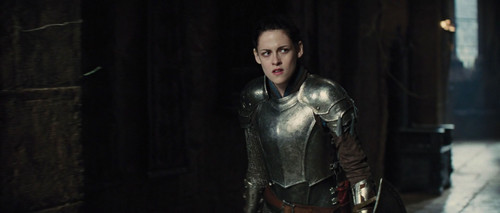
Snow therefore learns to fight using the intimidation and strategy tactics of the dwarves. However, more crucially Snow learns to use the way she is perceived by others as a weapon. She takes advantage of her opponents seeing her as naïve, fighting dirty when she is expected to concede defeat. I think this hits at a large part of why I prefer Mirror Mirror. Both films attempt to give Snow White greater agency as a character, but Huntsman often does so in a somewhat ham-fisted way. Stewart’s Snow White has been confined to a tower cell since infancy, leaving her with little in the way of practical or even social skills. Yet by the end of the film she is seen leading an army with armour and sword. I don’t want to write her off as a Mary Sue, but Stewart’s Snow has no justifiable reason to be skilled in combat. This is to some extent explained by a degree of training from the Huntsman, but it ultimately doesn’t add up to the level she shows in the film’s climax.

Given that Stewart’s Snow is consistently touted as a figure with a magical destiny, set against the powerful Ravenna, the plot dictates the two have to face off. But the beauty is power theme running through Theron’s character surely underscores the idea that there is more than one form of strength available to women. While military force is of course a form of strength open to Snow, it doesn’t really seem consistent with what we’ve seen during most of the movie. It seems more likely that the writers simply wanted a blockbuster, Lord of the Rings-style battle in the conclusion and hastily shoved Snow into it. I can’t help but feel the action taken by Collins’ Snow plays around with the idea of weakness in women and the way it’s perceived than Stewart.
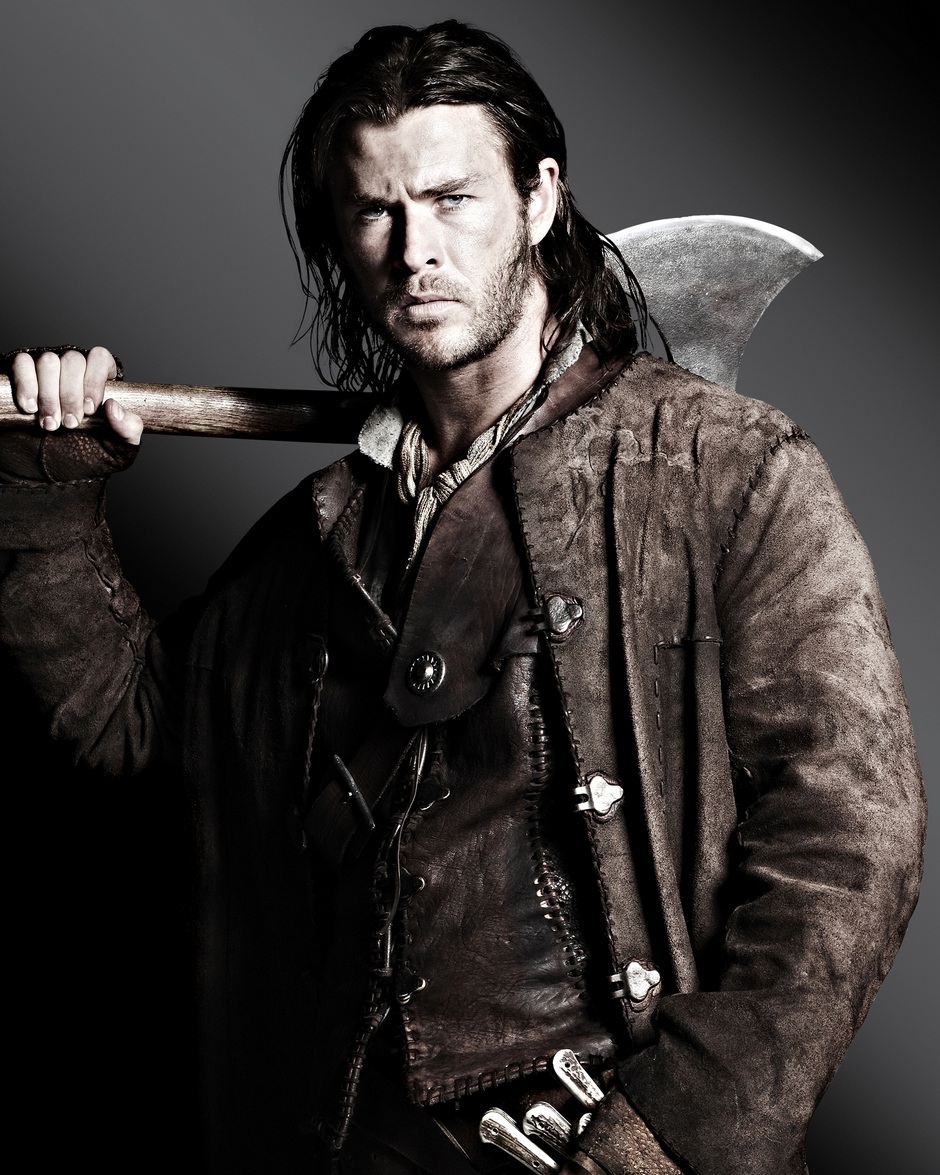
The final point I wish to address is that of romance. Chris Hemsworth, the titular Huntsman, is a drunken widower who is hired by Ravenna to capture Snow. Previously a pretty minor character in the original story, the Huntsman is promoted to main character status. He’s a typical action man, taking a swig out of a hip flask before doing pretty much anything. He also has a painfully bad Scottish accent. Seriously, listen to him and despair. Anyway, he likes Snow because she reminds him of his dead wife. However *gasp* there’s another love interest. Prince William, who Snow knew as a child, is in the resistance against the queen. Unfortunately, what with the war going on, there isn’t much time for catching up. However, once Snow eats the poisoned apple, true love’s kiss is needed to break the spell.
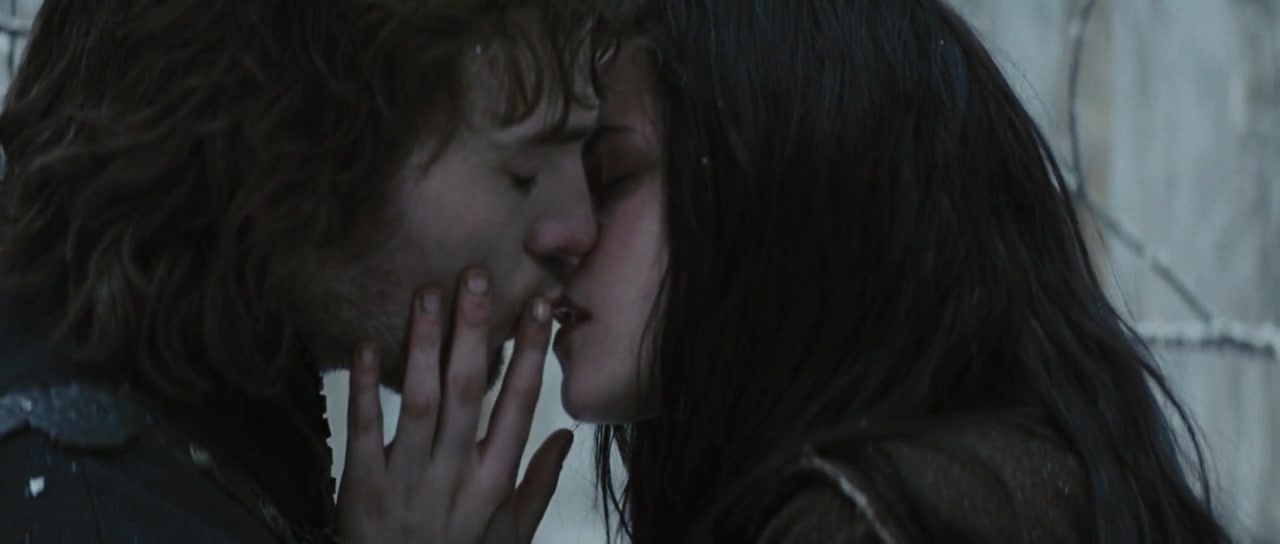
William in short order kisses Snow…but nothing happens. The Huntsman then precedes to give a mopey monologue about his dead wife, ending with the incredibly cringey line “You’ll be a queen in heaven.” After he kisses Snow she wakes up and determines to face Ravenna. The film leaves it ambiguous as to whether it was the Huntsman’s kiss which revived her, or a combination of his love and William’s. This is never really wrapped up by the end of the film, which is a bit of an issue. Maybe it was going to be addressed in the film’s sequel, but we all know what happened there. I don’t think a fairy tale needs a love story to be a success, but if you’re going to introduce two love interests, you should probably be doing something interesting with them. Given that Ravenna’s evil is in part influenced by bad experiences in romance, Snow’s experiences with men should have been a bit more thought out. Heck, it may have made more sense for Snow to have no love interest whatsoever, dedicating all her screen time towards her magical destiny.
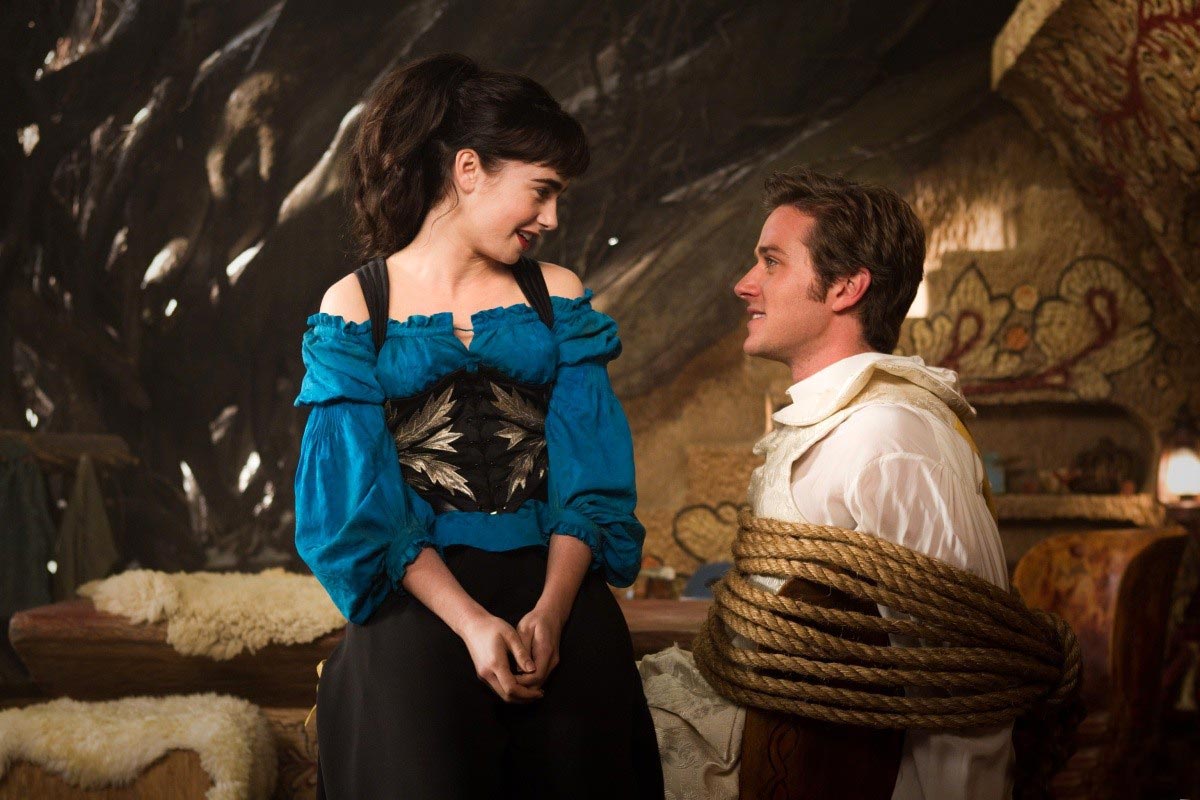
Mirror Mirror, meanwhile, features a far more fun pairing between Linda Collins and Armie Hammer. The handsome prince, played by Hammer, is nothing short of hilarious in every scene.Whether it’s in his fumbling romance scenes with Snow or his oblivious interactions with a noticeably thirsty Clementianna (a running gag has him appearing before her shirtless on multiple occasions), the Prince is played to perfection. He comes across as conceited and air-headed in his first appearance, leading him into trouble quickly. Though a skilled warrior, Prince Andrew consistently underestimates the dwarf bandits to his peril. He later makes the same mistake in a sword fight with Snow, who defeats him while he’s too busy gloating. Ultimately, he is rescued more often than he rescues in his relationship with Snow. This relationship sees the prince humbled by the end of the film. While it’s no means a love story for the ages, it’s overall more consistent with the film’s message of not underestimating those who appear weak.
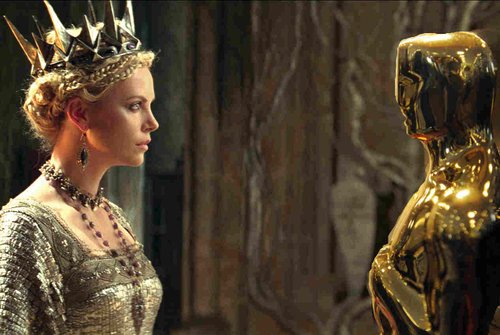
The magical elements of both films is worth discussing, being the most well-known feature of the traditional story. The mirror is a good starting point. Ravenna’s mirror is undoubtedly impressive, appearing to be a molten gold entity that takes the form of a shrouded figure. Voiced by the dulcet tones of Chris Obi, the mirror is a good symbol of Ravenna’s obsession with grandeur. But it only appears for one or two scenes, not giving us time to appreciate Ravenna’s reliance on it. While Ravenna’s magic operates on a vague, beauty is power philosophy, which probably could have held up in isolation. However, this becomes more complicated when Snow encounters a series of supernatural fairy creatures within the Dark Forest. Snow’s friendliness with these creatures is used to imply her role as an ally to the forces of nature, but they never really appear again. Even a line of dialogue as to how ‘good magic’ interacts with bad could have really cleared a lot up.

Clementianna’s mirror is played by Lisa Roberts Gillian, Julia’s sister, who plays the devil’s advocate the queen. As a mirror duplicate of the queen, the reflection is the only character in the film who can fearlessly talk back to the queen, which she does with notable sass. She repeatedly encourages the queen to ignore Snow White and focus on keeping the kingdom in order, reminding her that her magic will come at a considerable price. Clementianna ultimately ignores this to her peril. Mirror Mirror keeps its magic short and sweet, easily explainable. Use magic, there’s a cost.

At the end of the day Mirror Mirror is a good case study for not taking yourself too seriously. Huntsman tries very hard to appear dark and brooding, but it’s offset by some very hammy acting at times. Mirror Mirror never really attempts to hold itself to this standard, so many of its more embarrassing moments are more forgivable as a result. Mirror Mirror ultimately makes strong use of its supporting cast and directs its main characters towards a simple but strong plot which delivers satisfyingly by the end. I can’t help but feel Huntsman was trying hard to be innovative and original to actually, you know, be innovative and original. It wasn’t the first film to go dark with fairy tales and it certainly won’t be the last, but it ultimately tries to have its cake and eat it too. It tries to break with the conventions of its source material, while sticking to the tropes of preceding fantasy hits. Huntsman: Winter’s War is a good example of leaning on the latter strategy even more heavily.
So which is your favourite out of the two? Do you agree with me or have I just attacked a fan favourite? Let me know in the comments!
